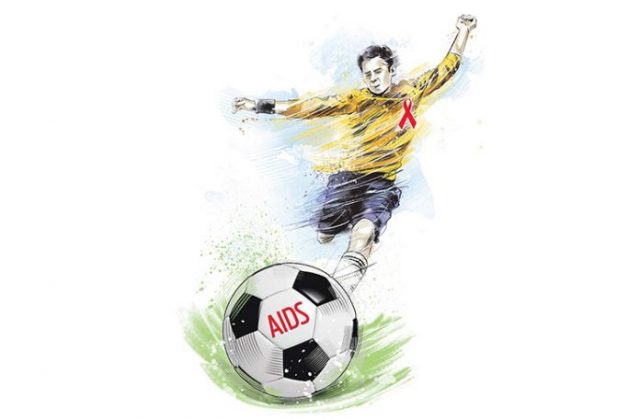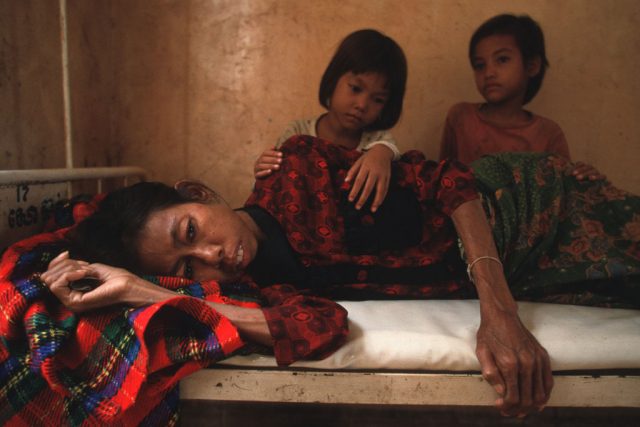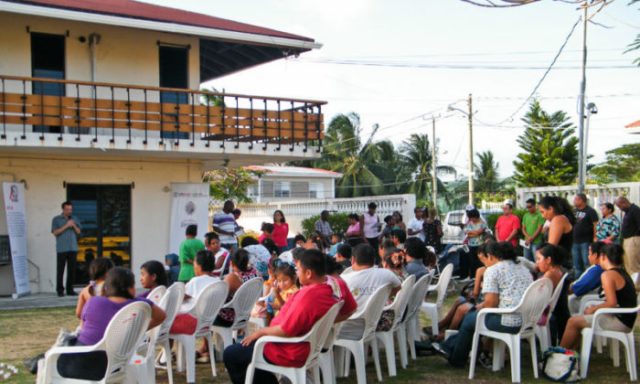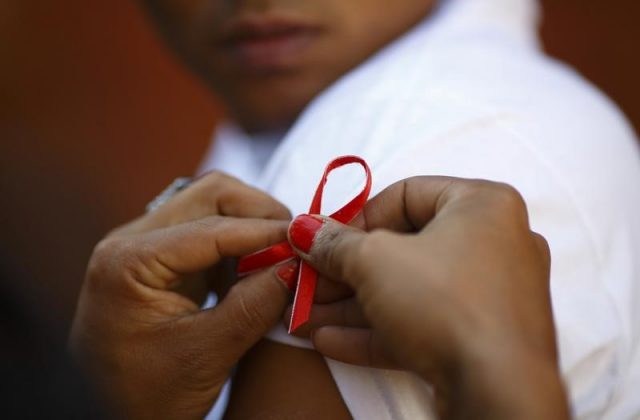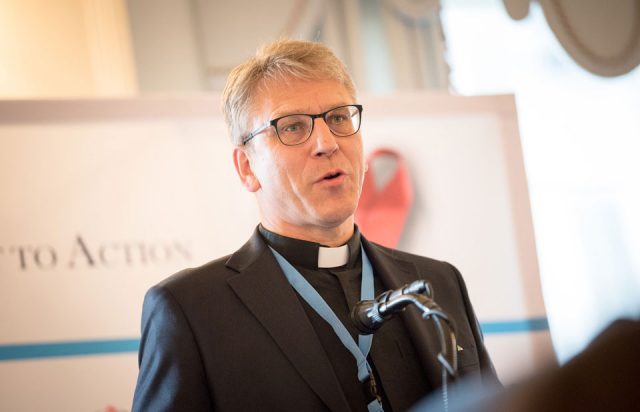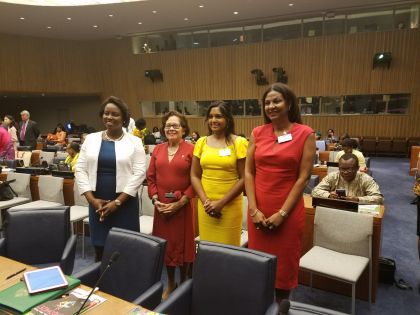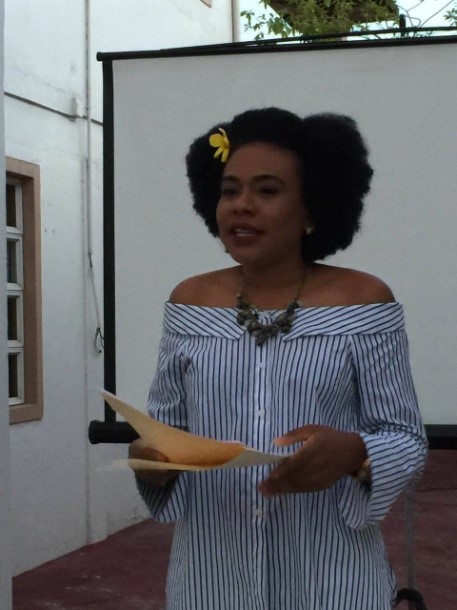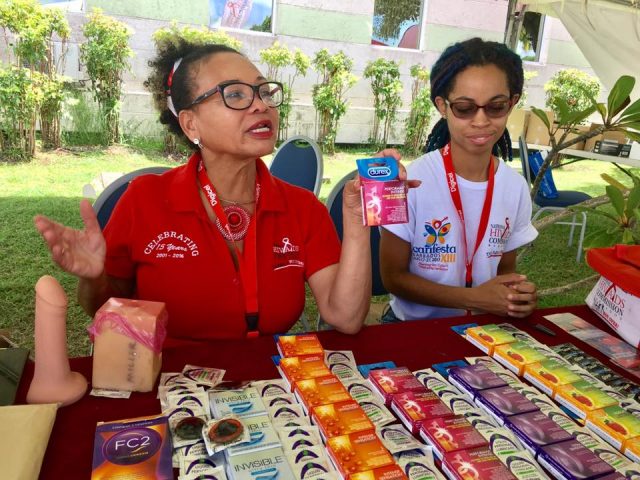(Georgetown, Guyana) A twenty-one-year-old National Football Player has been living with HIV since he was 17-years-old, and now he wants to find a way to break the news to his teammates of his status. However, as much as he believes it’s the right thing to do, he fears being discriminated against, simply because football in Guyana isn’t welcoming to his ‘type’.
To protect his identity, Chronicle Sport will refer to the player as ‘John’.
When ‘John’ was 17, he was invited by some friends to party, but, what he didn’t know was that he was being set-up by his friends. John was raped, repeatedly by a group of men.
“My mother use to ensure that my life was just about school and football, nothing else. I never got the chance to really socialize and so on, but then, mom decided to leave the country for a quick spin and asked that I stay with a family member for the period of time” John said.
“I went with my friends to this party in Kitty, they said it will be fun and I should learn the streets, because I was mommy boy. To make a long story short, I remember being undressed by some men, and got up feeling sore in my a**” John said, in relating his gruesome ordeal with some men he deemed as homosexuals.
The talented player, who represented Guyana at the youth level, including twice at the Inter Guiana Games (IGG), said football is an escape from the ‘noise’ around him. In fact, he said it was football which helped him to cope with abuse at home, suffered at the hands of his father who would also beat his mother to a pulp whenever the two would have an argument.
“My father was the cruelest man I’ve ever met. He use to kick my mom, one time, he hit her with a hammer, and I thought she died that night. But it was a norm in the ghetto, no one came to help. My father died and I never asked why, I didn’t cry and my mother kept me under her wing because I was all she had until my sister came along” John related in an emotional interview.
John’s story was substantiated by his mother and his counsellor, with both women claiming that despite a report being made about the incident of rape, nothing was ever done.
The player, who features for one of Georgetown’s popular football clubs, said he tried not to relate his story to anyone about being raped by men, since people would say he’s gay, “but I’m not. I am not homophobic, but I don’t endorse that kind of lifestyle, which is why that day still haunts me and If wasn’t for football, my mother and some really, really close family and my counsellor, I would’ve been dead by now because I attempted to take my life a few times.”
FINDING OUT BEING HIV POSITIVE
Almost a year after the incident, John fell ill and his mother who works in the medical field, thought her son had pneumonia, “I never thought about HIV” the player’s mother revealed to Chronicle Sport, adding that she thought he probably got some other form of autoimmune disease.
A trip to Georgetown Hospital would change the family’s life after John’s blood test showed that he was HIV Positive. Several tests done at a number of medical institutions in Guyana by the family didn’t change the positive result.
“I can’t even explain the amount of things that went through my mind. But I never had sex before that incident and I never had sex in my life. I met a girl while studying, and I told her I had HIV and she stopped talking to me” John said.
SCARED OF DISCRIMINATION
“Football is my life, understand, there’s nothing that brings me more joy right now other than playing football, even if it’s on my PlayStation but right now, we are searching for ways to come out; come out and tell my teammates ‘hey, I’m HIV Positive’, but I know this game and how unwelcoming it is to people who aren’t seen as normal, be it sexual orientation or their health.”
There has never been a player in Guyana who came out publicly or even hinted to his teammates that he’s HIV positive, but, there have been highly speculated instances of players who died as a result of contracting the virus.
Reports are prevalent from outside of Guyana, where players lose their professional contract after being tested positive, as is the case of Cameroon International Samuel Nled who, just days after signing his contract, was released by his club after his HIV results returned positive.
President of the Guyana Football Federation (GFF) Wayne Forde, when asked if there are provisions to deal with players like John, said “the position of the GFF is very clear when it comes to discrimination, we insist that there’s no place for it in football. I think with the case of HIV, the GFF will not stop anyone from playing the beautiful game unless concrete evidence and medical guidance. I think thanks to more tools of education, people now, unlike the old times, know how to co-exist.”
However, John disagrees with the GFF president, stating “there’s no education for sportsmen and women in Guyana about a lot of things, and HIV happens to be one of them. I know, in football, locally, there are no medical done on our players, clubs and the federation here pay no interest in that part of the game. Take me for example, people don’t know when I was really sick, but, thanks to my mother and close family, I have my antiretroviral drugs; tenofovir, lamivudine, emtricitabine, efavirenz and other drugs that keep me well, along with eating healthy.”

